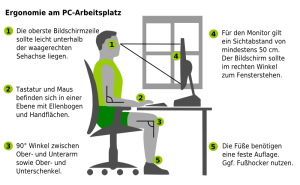Module 09: Human Factors, Ergonomics, & AI in the Workplace
 Description: This module introduces the application of psychological principles to the design of work systems, tools, and environments in the age of artificial intelligence. Students will explore how human capabilities and limitations should inform workplace design, including topics like cognitive workload, attention and vigilance, human-computer interaction, physical ergonomics, and human-AI collaboration. The module emphasizes designing work systems that optimize both performance and well-being while examining how AI is transforming workplace dynamics and the critical importance of human-centered AI implementation.
Description: This module introduces the application of psychological principles to the design of work systems, tools, and environments in the age of artificial intelligence. Students will explore how human capabilities and limitations should inform workplace design, including topics like cognitive workload, attention and vigilance, human-computer interaction, physical ergonomics, and human-AI collaboration. The module emphasizes designing work systems that optimize both performance and well-being while examining how AI is transforming workplace dynamics and the critical importance of human-centered AI implementation.
Why this Module is Important: As work becomes increasingly complex, technology-dependent, and AI-enhanced, understanding human factors becomes critical for creating safe, efficient, and satisfying work environments that leverage both human and artificial intelligence effectively. This module teaches students how to apply psychological principles to system design in traditional and AI-augmented workplaces, helping prevent errors, reduce fatigue, and optimize human-AI collaboration.
For future counselors, this knowledge is essential for understanding how AI impacts workplace stress, job displacement anxiety, and the changing nature of work that affects client well-being.
Understanding human-AI interaction is increasingly relevant for mental health professionals who will work in organizations implementing AI tools for everything from patient scheduling to diagnostic assistance. Additionally, many clients will present with concerns about AI’s impact on their careers, workplace autonomy, or job security – making this knowledge essential for effective counseling practice.
Module Learning Objectives: By the end of this module students will be able to…
- MLO1: Explain human factors principles, cognitive workload concepts, and AI workplace applications as emerging elements of organizational psychology. (ULO4, CLO1, APA1)
- MLO2: Evaluate the cognitive and physical demands of work tasks in human-AI collaborative environments and assess the psychological impacts of AI implementation on employee well-being. (ULO4, CLO1, CLO2, APA1, APA2)
- MLO3: Apply human factors and AI considerations to workplace absenteeism solutions and synthesize literature on technology-enhanced workforce management approaches. (ULO4, CLO3, CLO4, APA4, APA5)

Media Attributions
- Ergonomic Workstation © Marcel Kollmar is licensed under a Public Domain license
- Collaborative Meeting © Redd Francisco is licensed under a Public Domain license
